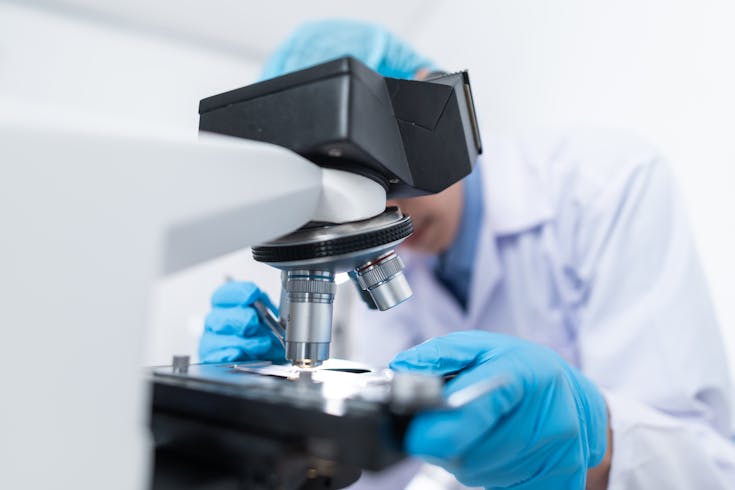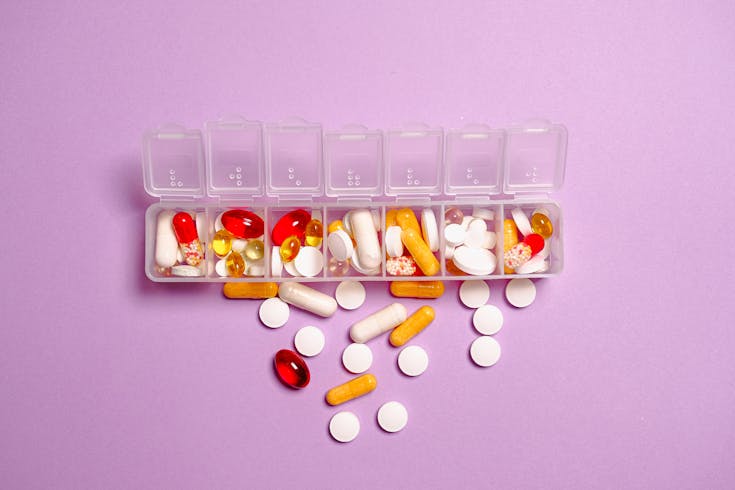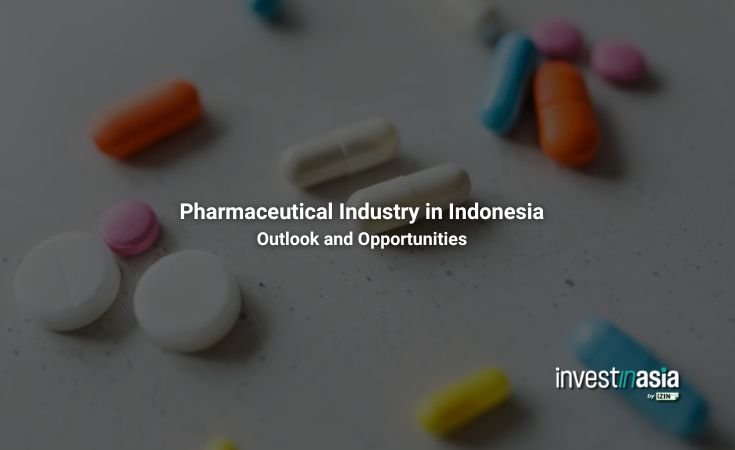The pharmaceutical industry in Indonesia stands as a dynamic and rapidly growing sector in Southeast Asia. It is driven by factors such as increasing healthcare awareness, a growing population, and government-backed healthcare programs. With both challenges and opportunities present, Indonesia’s pharmaceutical market is becoming an attractive investment destination for foreign businesses.
Indonesia Pharmaceutical Industry Outlook


The pharmaceutical industry in Indonesia has experienced rapid growth over the past decade, driven by rising purchasing power, increased health awareness, and improved access to healthcare services and facilities. The market gained unprecedented momentum during the COVID-19 pandemic, recording a nearly 50% revenue growth in 2021, marking its highest historical increase.
Indonesia hosts Southeast Asia’s largest and one of the fastest-growing pharmaceutical markets. With a youthful demographic and expanding population, the industry’s revenue is projected to grow from USD 3.6 billion in 2022 to approximately USD 4.6 billion by 2029. Universal healthcare through the government’s JKN-KIS program, covering over 90% of the population, further bolsters this growth. However, the sector faces challenges, such as dependency on imported raw materials and a trade deficit caused by the higher import than export values.
Also read: Major Industries in Indonesia (Based on Contribution to GDP)
Key Growth Drivers
Indonesia’s vast population and increasing health-related spending create significant business opportunities for pharmaceutical companies. Key growth drivers include:
- Universal Healthcare Expansion: JKN-KIS ensures broad access to healthcare services, fueling demand for pharmaceuticals.
- Rising Demand for Generics: Due to high costs of patented medicines, low-cost generic options dominate the local market, offering opportunities for cost-efficient manufacturing.
- Infrastructure Development: Provinces like East Java, West Java, and Banten are developing industrial estates and gas pipelines, enhancing the manufacturing landscape.
- Government Incentives: Fiscal and non-fiscal benefits, such as tax exemptions and streamlined licensing, attract foreign direct investment (FDI) in the pharmaceutical sector.
- Digitalization: Leveraging digital technologies enhances supply chain operations and boosts overall efficiency.
Also read: Indonesia Investment Incentives: Government Support for Foreign Businesses
Pharmaceutical Business Opportunities in Indonesia
Indonesia’s vast population and increasing health-related spending create significant business opportunities for pharmaceutical companies. Key growth drivers include:
- Generic Medicine Manufacturing: High costs of patented medicines make affordable generics a dominant choice in the local market, offering vast potential for production and distribution.
- Over-the-Counter (OTC) Products: Increasing demand for OTC products, including hand sanitizers and health supplements, highlights a growing consumer trend.
- Vaccine Production: With substantial government spending on healthcare, local production of vaccines can meet both domestic and regional demand.
- Traditional Medicine: Indonesia’s rich biodiversity provides opportunities for developing traditional and herbal medicines.
- Pharmaceutical Raw Materials: Investments in raw material production can reduce the sector’s import dependency and improve cost efficiency.
- Healthcare Technology Integration: Digital health solutions, such as telemedicine and smart supply chains, offer a niche for technological innovation.
Also read: Indonesia Negative Investment List (DNI): Latest Update
Indonesia Pharmaceutical Business Regulation
Establishing a pharmaceutical business in Indonesia involves compliance with several regulations:
- Licensing: Companies must secure business permits from the Investment Coordinating Board (BKPM) and the Ministry of Health.
- Raw Material Standards: Adherence to Good Manufacturing Practices (GMP) for raw material procurement is required.
- Import Policies: High dependency on imported raw materials mandates compliance with customs and taxation regulations.
- Intellectual Property (IP) Laws: Patents for new medicines must be registered under Indonesian IP law.
The government’s long-term strategy includes reducing import dependency and promoting local manufacturing to meet domestic demand and improve cost efficiency.
Also read: Indonesia’s Positive Investment List: Opportunities for Investors
Examples of Pharmaceutical Companies in Indonesia


Local companies dominate Indonesia’s pharmaceutical market, including:
- Kalbe Farma: The largest pharmaceutical company in Indonesia, specializing in prescription drugs, over-the-counter (OTC) medicines, and health supplements.
- Kimia Farma: A state-owned enterprise, prominent in producing generics and traditional medicine.
- Sanbe Farma: Known for manufacturing a wide range of pharmaceutical products.
These companies primarily distribute medicines directly to consumers, with a significant focus on affordable generics.
Also read: 10 Top Pharmaceutical Companies in Indonesia
How to Start a Pharmaceutical Company in Indonesia
To establish a pharmaceutical company in Indonesia, follow these steps:
- Market Research: Assess the demand for specific pharmaceutical products and identify target demographics.
- Incorporation: Register your company through the Online Single Submission (OSS) system under BKPM.
- Obtain Licenses: Acquire licenses such as the Pharmaceutical Manufacturing License (SIK) and Distribution License (SIKA).
- Build Partnerships: Collaborate with local suppliers or manufacturers to source raw materials and streamline operations.
- Comply with Standards: Ensure facilities meet GMP and international quality standards.
The pharmaceutical industry in Indonesia offers lucrative opportunities for foreign investors, driven by its robust market growth, universal healthcare program, and government incentives. However, companies must navigate challenges like raw material dependency and regulatory complexities. By aligning with local policies and leveraging Indonesia’s market potential, foreign investors can play a pivotal role in shaping the future of the industry.
If you are considering starting a pharmaceutical business in Indonesia, there are a number of resources and support services available to help you get started.
InvestinAsia is among the companies that specialize in aiding you with Indonesia company registration. We boast a team of seasoned experts who can guide you throughout the process of:
- Foreign company / PMA registration in Indonesia
- Indonesia representative office registration
- PT PMDN Set Up
- Virtual office setup in Indonesia
- Business registration number in Indonesia
- Indonesian Business Licenses
- Indonesia Trademark Registration
If you are interested in starting a business in Indonesia, you can start by contacting us for FREE consultation.
Sources:




